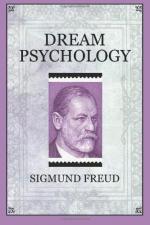That source is the unconscious. I believe that the conscious wish is a dream inciter only if it succeeds in arousing a similar unconscious wish which reinforces it. Following the suggestions obtained through the psychoanalysis of the neuroses, I believe that these unconscious wishes are always active and ready for expression whenever they find an opportunity to unite themselves with an emotion from conscious life, and that they transfer their greater intensity to the lesser intensity of the latter.[1] It may therefore seem that the conscious wish alone has been realized in a dream; but a slight peculiarity in the formation of this dream will put us on the track of the powerful helper from the unconscious. These ever active and, as it were, immortal wishes from the unconscious recall the legendary Titans who from time immemorial have borne the ponderous mountains which were once rolled upon them by the victorious gods, and which even now quiver from time to time from the convulsions of their mighty limbs; I say that these wishes found in the repression are of themselves of an infantile origin, as we have learned from the psychological investigation of the neuroses. I should like, therefore, to withdraw the opinion previously expressed that it is unimportant whence the dream-wish originates, and replace it by another, as follows: The wish manifested in the dream must be an infantile one. In the adult it originates in the Unc., while in the child, where no separation and censor as yet exist between Forec. and Unc., or where these are only in the process of formation, it is an unfulfilled and unrepressed wish from the waking state. I am aware that this conception cannot be generally demonstrated, but I maintain nevertheless that it can be frequently demonstrated, even when it was not suspected, and that it cannot be generally refuted.
The wish-feelings which remain from the conscious waking state are, therefore, relegated to the background in the dream formation. In the dream content I shall attribute to them only the part attributed to the material of actual sensations during sleep. If I now take into account those other psychic instigations remaining from the waking state which are not wishes, I shall only adhere to the line mapped out for me by this train of thought. We may succeed in provisionally terminating the sum of energy of our waking thoughts by deciding to go to sleep. He is a good sleeper who can do this; Napoleon I. is reputed to have been a model of this sort. But we do not always succeed in accomplishing it, or in accomplishing it perfectly. Unsolved problems, harassing cares, overwhelming impressions continue the thinking activity even during sleep, maintaining psychic processes in the system which we have termed the foreconscious. These mental processes continuing into sleep may be divided into the following groups: 1, That which has not been terminated during the day owing to casual prevention; 2, that which has been left unfinished by temporary paralysis of our mental power, i.e. the unsolved; 3, that which has been rejected and suppressed during the day. This unites with a powerful group (4) formed by that which has been excited in our Unc. during the day by the work of the foreconscious. Finally, we may add group (5) consisting of the indifferent and hence unsettled impressions of the day.




